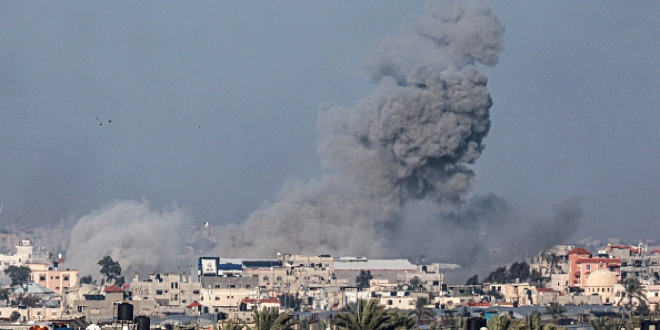Efforts to broker a ceasefire between Israel and Hamas continue as the conflict in the Gaza Strip intensifies, exacerbating a grave humanitarian situation.
The Israeli military reports that in the last 24 hours, they have neutralized numerous terrorists and a long-range missile launcher in Khan Younis, a city in southern Gaza heavily impacted by the conflict. Meanwhile, Hamas leader Ismail Haniyeh is expected in Cairo soon for discussions regarding a proposed ceasefire, as mediators in Paris work towards a truce.
The combat and aerial bombardment in Gaza show no signs of abating, particularly in Khan Younis, where Israeli officials believe key Hamas militants are located. Recent Israeli airstrikes have targeted the city, causing significant damage, particularly around medical facilities. The Gaza Health Ministry has reported 119 fatalities due to the latest night of strikes.
International aid organizations are deeply concerned about the escalating violence. The World Health Organization’s emergency director, Michael Ryan, highlighted the severe impact on Gaza’s population, who are facing extreme hardships due to limited access to humanitarian aid.
The United Nations reports extensive bombardment across Gaza, with a significant number of Palestinians from Khan Younis seeking humanitarian assistance after fleeing their homes.
In efforts to negotiate a ceasefire, Haniyeh’s upcoming visit to Cairo will focus on a truce proposal developed in Paris, involving a six-week halt in hostilities and increased aid deliveries to Gaza. The initial phase of this three-stage plan would facilitate the release of certain hostages in exchange for Palestinian prisoners in Israel.
Hamas’s October 7 attack on Israel, which resulted in significant casualties, triggered a large-scale Israeli offensive in Gaza, causing extensive damage and loss of life. The United Nations estimates that rebuilding Gaza, which is currently in a dire state, will require tens of billions of dollars.
Amidst these developments, Israeli Prime Minister Benjamin Netanyahu remains firm in his stance against withdrawing troops from Gaza and releasing Palestinian prisoners. The ongoing crisis in Gaza has led to protests and political pressure within Israel.
Controversy also surrounds the U.N. agency for Palestinian refugees, UNRWA, after Israel accused some of its staff of involvement in the Hamas attack. This has led several donor countries, including the United States, to suspend funding for the agency. United Nations Secretary-General Antonio Guterres and UNRWA have called for an independent investigation into these claims.
The conflict’s repercussions extend beyond Gaza, with increasing violence in the Middle East involving Iran-backed groups. The U.S. has attributed a recent drone attack in Jordan, which killed three U.S. soldiers, to the Islamic Resistance in Iraq, an alliance of pro-Iran armed groups. Additionally, Yemen’s Houthi rebels, aligned with Iran, have been targeting Red Sea shipping, prompting retaliatory strikes by the U.S. and the UK.
This conflict has significantly impacted global trade, with a noticeable decline in container shipping through the Red Sea. The U.S. military has responded by downing Iranian drones and a Houthi-fired anti-ship missile, as well as conducting airstrikes against Houthi targets in Yemen.


